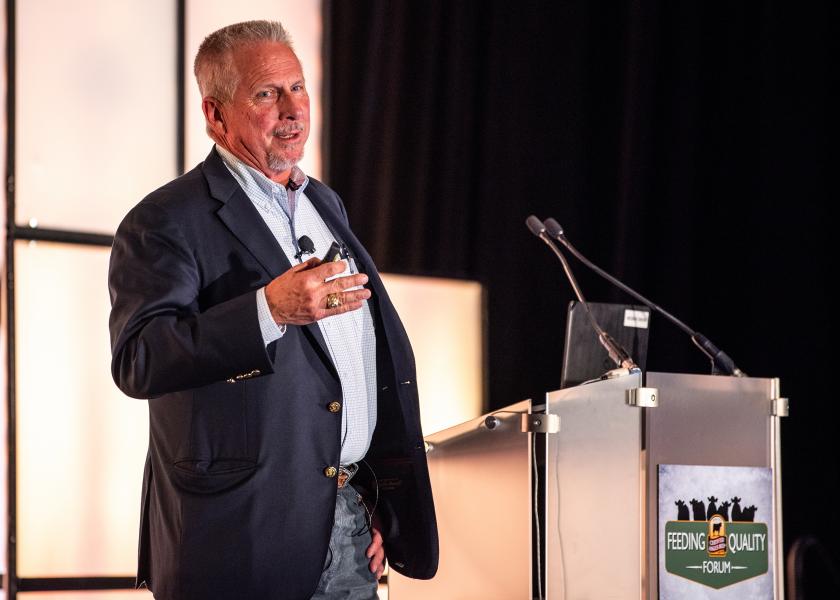Packer Addresses Challenges And Solutions

“Continuous improvement” has become a catch phrase in livestock production. It’s what we have to do to demonstrate to consumers that we’re committed to getting better. It’s how we measure progress.
But it’s not just for cattle producers.
Glen Dolezal, assistant vice president of technology development for Cargill Protein, says the packing company puts the same pressure on themselves.
“You can make progress if you measure it and discuss it and encourage it.”
Cargill has cameras installed throughout their plants for 24/7 monitoring.
“It’s for our animal handling and food safety interventions. We take a systematic approach to both,” he says. They do regular audits—both internal and external—on everything from stunning to electrical prod usage, and they’ve made measurable strides.
“You watch it every day. You watch it every shift. You watch it in every plant,” Dolezal says. Then they benchmark plants to one another. “So it puts the pressure on employees to do the right thing and that’s how you make progress: both measure and manage it.”
North American Meat Institute guidelines suggest packing plants not exceed 25% electrical prod use. Cargill’s goal was 15% or less.
By last summer, they’d driven that usage down to zero in some plants. Air prods use pressurized air and vibrations to help move cattle, and they invest in handler training.
Cargill is a strong supporter of the Beef Quality Assurance (BQA) and Beef Quality Assurance Transportation (BQAT) programs.
Their 2018 goal was to have 90% of the beef supply coming from BQA-certified suppliers.
“We met that goal based on the volume we buy,” Dolezal says, noting producers in Texas lead the way. If it were based on number of suppliers, they’d be about half of that. “We have some room to improve…if you do business with Wendy’s, McDonald’s and others, they’re demanding this now. That's why it's become even more important to be able to tell the story that you're following some sound guidelines and trying to do the right thing.”
He asks cattlemen who have already gotten certified to encourage their neighbors.
“It supports the industry and it’s the right thing to do,” he says.
This year, Cargill will audit truck drivers to be sure they’ve taken the BQAT certification training.
“They’ll get a warning and then eventually they won’t be delivering cattle without BQAT certification,” he says.
Some of the packer’s improvements are addressing needs “right now,” such as working with trailer companies to try modifying trailer-ramp designs to eliminate cattle bruising.
Others are in preparation for the future.
“We are installing both low-frequency and high-frequency readers at some of our plants today,” Dolezal says. If there’s a national traceability program, Cargill will be ready for it.
Some challenges seem to be perennial.
“One of the things that causes us packers to lose sleep is lack of labor. We’re having difficulty running all of our plants, particularly on second shift,” Dolezal says.
And others seem to be building.
“We’re encouraged that suppliers are experimenting and coming up with best practices to replace the need for using medically important antibiotics sub-therapeutically,” he says, noting they have significant foodservice customers voicing concerns.
Some feedyard suppliers are making changes, such as pulling Tylan out of the ration 30 days pre-harvest.
“This is one step forward. We need more like that. Does roughage help? Are there vaccines that are going to address it, independent of medically important antibiotics?” Dolezal says. “That would all be positive.”
Regardless of the hurdles that beef business faces, Cargill knows cattlemen will rise to overcome.
“We can’t operate without them,” he says. It starts with good genetic selection at the seedstock level, then conscientious care at the cow-calf and feedyard level. “We all have to work together to ensure we have viability in the beef industry to continue.”
Related stories:
CAB Insider: Prime Seasonality







